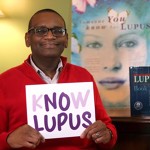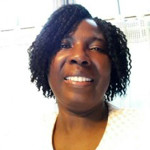Amplifying Black Voices: The Importance of Finding Community
When you live with a chronic autoimmune condition like ankylosing spondylitis, finding a community that understands is powerful. And, science backs this up.1
What is community? It is a group of people with shared experiences. These people offer what a doctor does not: experience living inside a body with this condition. For someone with a chronic health condition, community also offers:1,2
- Practical tips to self-manage symptoms
- Emotional support and understanding
- Guidance on paying for care
- Links to books and blogs
- Sharing recipes and stories
- Answers to insurance issues
It can be hard to find your community, especially if you are part of a smaller demographic within the larger group. However, finding community is worth the effort. Studies show that people who feel part of a community report better health. Support groups encourage people to communicate more with their doctors, take part in social activities, and reduce the number of hospital visits.3-5
When your community is small
Finding community is essential when you live with a chronic condition. But what if your community is small?
People of color who have autoimmune conditions often find themselves a minority within a minority. It is similar for men who have a disease that mostly affects women.
Below, Black advocates share what it was like finding a community for their autoimmune condition. We asked: Are you aware of groups or organizations related to your condition that focus specifically on the experiences of Black people? If you could not find any, how did that impact you? Read their answers below!
The power of representation
Rheumatoid arthritis impacts Black people in larger numbers than any other people of color. And, Black women are more likely to have the disease than Black men. But people of color are underrepresented in research and medical literature.6,7
 "I definitely do not know any organizations that are related to my condition and focus on the experience of Black people, and that has definitely negatively impacted me. I feel that growing up Black when something new medically comes out, then of course I want to look it up and learn more about it, but I catch myself adding “results in Black people” to my Google search. For example, microblading [a cosmetic procedure] results 'in Black people,' because 9 times out of 10 when you Google something, it’s going to come up in relation to a white person. Then of course, when I don’t find an answer right away that deals with my specific race, I get sad. " - Randi, RheumatoidArthritis.net Advocate
"I definitely do not know any organizations that are related to my condition and focus on the experience of Black people, and that has definitely negatively impacted me. I feel that growing up Black when something new medically comes out, then of course I want to look it up and learn more about it, but I catch myself adding “results in Black people” to my Google search. For example, microblading [a cosmetic procedure] results 'in Black people,' because 9 times out of 10 when you Google something, it’s going to come up in relation to a white person. Then of course, when I don’t find an answer right away that deals with my specific race, I get sad. " - Randi, RheumatoidArthritis.net Advocate
Only 10 percent of people with lupus are men.8
"It does not impact me in any way that specifically focuses on the experiences of Black people. Thirty years ago, I would have been worried since the media focused on the experiences of white women with lupus. As you will see in one of my articles, I often got the idea that lupus was a disease of white women from media and from books that I read. The woman who mentored me on my journey was a white woman. The books I read and the shows I saw suggested that lupus was only a disease of white women. Therefore, I felt isolated and felt some discomfort that I was such a minority as a Black man with lupus. " - Christopher, Lupus.net Advocate
Finding people who understand
People of color do find and create community spaces to address their unique needs. Nonprofits are beginning to take notice and create more space for different voices.
 "Health Union [the parent company of PsoriaticArthritis.com] and the National Psoriasis Foundation are the 2 organizations that come to mind for diversity and reaching out to brown and Black people. I have had anxiety my whole life as a Black woman. I know how people view me. When it comes to finding a good doctor, they look at me differently. When I started researching things for myself and asking doctors questions, they question me back. One thing I have learned, even with my health I have to be twice as good and know my wealth to go half as far. " - Diane, Psoriatic-Arthritis.com Advocate
"Health Union [the parent company of PsoriaticArthritis.com] and the National Psoriasis Foundation are the 2 organizations that come to mind for diversity and reaching out to brown and Black people. I have had anxiety my whole life as a Black woman. I know how people view me. When it comes to finding a good doctor, they look at me differently. When I started researching things for myself and asking doctors questions, they question me back. One thing I have learned, even with my health I have to be twice as good and know my wealth to go half as far. " - Diane, Psoriatic-Arthritis.com Advocate
 "My dear friend recruited me into her closed Facebook group for our women. She and the admins roam the internet looking for potential members. Her space was my first time being surrounded by people like me. The Spondylitis Association of America (SAA) and Creaky Joints enthusiastically raise awareness of our people, but I'm unaware of anybody working just for us at the foundation level. And I'd like to go someplace for me, but it's a blank spot in my mind. That's how far out in the wilderness we are. The idea that a foundation like this could exist barely registers. And no, I'm not starting my own. It would take about a million dollars to be a major player." - Dawn, AnkylosingSpondylitis.net
"My dear friend recruited me into her closed Facebook group for our women. She and the admins roam the internet looking for potential members. Her space was my first time being surrounded by people like me. The Spondylitis Association of America (SAA) and Creaky Joints enthusiastically raise awareness of our people, but I'm unaware of anybody working just for us at the foundation level. And I'd like to go someplace for me, but it's a blank spot in my mind. That's how far out in the wilderness we are. The idea that a foundation like this could exist barely registers. And no, I'm not starting my own. It would take about a million dollars to be a major player." - Dawn, AnkylosingSpondylitis.net
 "National Institute on Minority Health and Health Disparities is one. I know there are others that are lesser-known, like the Black Women's Health Imperative. " - Gabrielle, Lupus.net Advocate
"National Institute on Minority Health and Health Disparities is one. I know there are others that are lesser-known, like the Black Women's Health Imperative. " - Gabrielle, Lupus.net Advocate "There are organizations such as the NPF and some pharmaceutical companies that include Black voices and the patient experience. Although I am happy changes have occurred and organizations are working harder to ensure representation of all kinds of patients, we still have a long way to go. Currently, I still feel what’s happening is not enough, and we need more organizations to work harder to include the Black patient experience through storytelling and research." - Alisha, Psoriatic-Arthritis.com Advocate
"There are organizations such as the NPF and some pharmaceutical companies that include Black voices and the patient experience. Although I am happy changes have occurred and organizations are working harder to ensure representation of all kinds of patients, we still have a long way to go. Currently, I still feel what’s happening is not enough, and we need more organizations to work harder to include the Black patient experience through storytelling and research." - Alisha, Psoriatic-Arthritis.com Advocate
What have been your experiences with finding community? Have you felt the power of being heard and understood?

Join the conversation